
I am currently writing this in the middle of the afternoon on the Fourth of July, while it's still fresh in my head. To think, I spent this most American of holidays, poolside, reading a book about...Australia.
Bill Bryson is one of my very favorite authors. I have read a few of his wonderful tomes; my two favorites are A Walk in the Woods, his account of hiking the Appalachian Trail, and The Lost Continent: Travels in Small-Town America, where he travels the USA in, of all things, a Chevette. Anyone remember those cars, kittens, the hallmark of GM's glory days?
Anyhoo, pretty much anything involving Bill Bryson and traveling is guaranteed to be a wonderful book, and In a Sunburned Country is just that. Up till I had finished this book, I didn't know much about Australia except for these random facts:
- It is the only continent that is also its own country.
- It is the only continent lying completely below the equator.
- It's capital is Canberra, not Sydney.
- Kangaroos and duckbill platypuses live there.
- Two big symbols of Australia are the Sydney Opera House and the Sydney Harbor Bridge.
- Hugh Jackman (SWOON!), Russell Crowe, Nicole Kidman, and Naomi Watts all hail from there.
- Sydney hosted the Olympics in 2000.
- It's inhabitants have cool accents and colloquialisms.
Bryson's book is thoroughly researched, and takes you all across Australia, to areas of the continent that are still either sparsely or non-populated. Even though it's a small continent, you still have to travel hundreds of miles between tourist destinations and/or cities and towns. He writes about roads that are so isolated, that if your car breaks down in the middle of the hot Australian desert, you're basically screwed.
He also writes about how Australia, in spite of its poor soil, has produced some of the most spectacular plant species in the world, plants that cannot live anywhere else. In this same vein, he writes about the hundreds of species of poisonous insects that can kill a human being instantly. He spends quite a bit of time writing about this throughout the book, particularly in the beginning, where he writes about his fear about being stung by a jellyfish during his attempts to learn how to boogieboard.
Bryson's specialty lies in two areas, one of which is describing cultural phenomenon that are unique to Australia. For example, in chapter 7, Bryson writes about his experience listening to the radio while traveling the eight hundred miles from Canberra to Adelaide:
"As if to emphasize the isolation, all the area radio stations began to abandon me. One by one their signals faltered, and all those smoky voices so integral to Australian airwaves--Vic Damone, Mel Torme, Frank Sinatra at the mindless height of his doo-bee-doo phase--faded away, as if being drawn nby some heavy gravity back into the hole from which they had escaped. Eventually the radio dial presented only an uninterrupted cat's hiss of static but for one clear spot near the end of the dial. At first I thought that's all it was--just an empty clear spot--but then I realized that I could hear the faint shiftings and stirrings of seated people, and after quite a pause, a voice, calm and reflective, said:
'Pilchard begins his long run in from short stump. He bowls and...oh, he's out! Yes, he's got him. Longwilley is caught leg-before in middle slops by Grattan. Well, now what do you make of that, Neville?'
'That's definitely one for the books, Bruce. I don't think I've seen offside medium-slow fast-pace bowling to matchi it since Baden-Powell took Rangachangabanga for a maiden ovary at Bangalore in 1948.'
I had stumbled into the surreal and rewarding world of cricket on the radio." (p. 105)
Bryson's other strength lies in his writings about forgotten Australian heroes. Take, for instance, the tale of explorer Ernest Giles:
"In the same year that he lost Gibson in the desert and stumbled 120 miles through appalling heat [1874], Giles also explored the central regions around the area known as Yulara. One day he struggled up a small rise and was confronted with a sight such as he could never have dreamed of finding. Before him, impossibly imposing, stood the most singular monolith on earth, the great red rock now known as Uluru. Hastening to Adelaide to report the find, he was informed that a man named William Christie Gosse had chanced upon it a few days ahead of him and had already named it Ayers Rock in honor of the South Australia governor.
Eventually, too old to explore, Giles ended up working as a clerk in the goldfields of Coolgardie, where he died in obscurity in 1891. Today he is almost entirely forgotten. No highway bears his name." (pp. 246-247)
I really could go on about the different topics that Bryson explores, but if I did, I would essentially be rewriting the book. In a Sunburned Country is a very affectionate view of the Land Down Under. What I have always liked about Bryson's writing is that he writes as if you were right there with him. Open the book, read a few paragraphs, and suddenly, you're with him in Australia. I love writers who have the ability to do this, to take me places in the comfort of my own chair. I especially love how Bryson takes his readers off the tourist path, to places that tourists wouldn't necessarily explore on their own. He really gets into writing about the depth and breadth of Australian culture.
Before I read this book, one of my goals in life was to travel to Australia. Now I want to go there even more.
This book is the latest entry in my 2009 100+ Reading Challenge, my 2009 Read Your Own Books Challenge, as well as my 2009 Summer Vacation Reading Challenge. As always, click on the buttons in the sidebars for the archived lists of all of my reads!




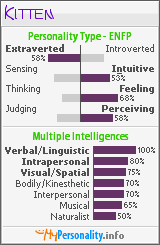





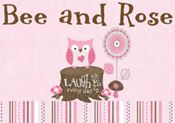


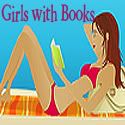






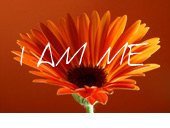






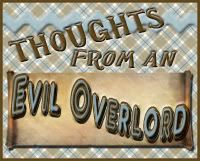






2 comments:
I am a HUGE Bryson fan ... I love that you are entertained but educated without feeling like you are learning. He is a master at the travel narrative and explaining things in a fascinating way. When I read this book, I remember thinking "Gosh..there are a lot of animals that can kill you in Australia!"
I'm gonna have to read this!
Post a Comment